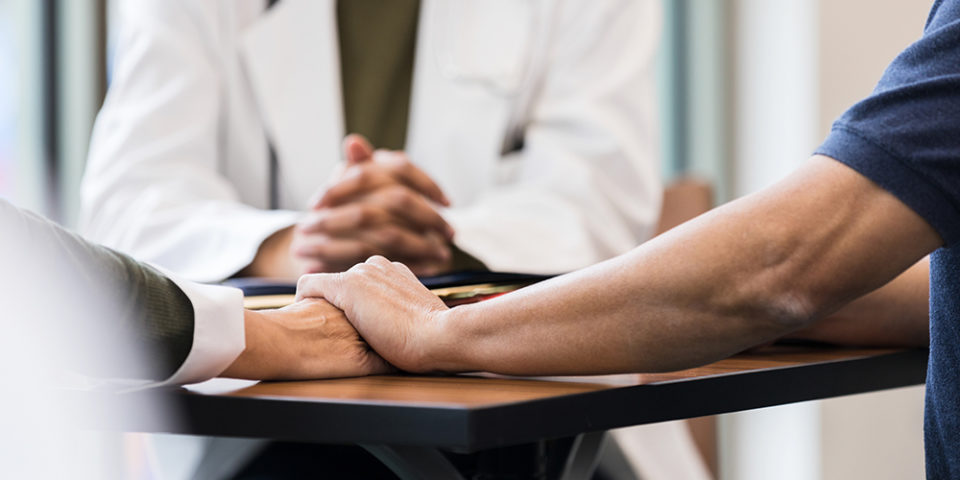5 steps for coping when you’ve been diagnosed with cancer
Learning of your cancer diagnosis can cause shock, fear, confusion and grief. You may also have questions about what happens next and what you can do for yourself when you’ve been diagnosed with cancer. It’s important to make sure you have access to information that is helpful and correct.
Blake Miller, staff chaplain for Prisma Health’s Center for Integrated Oncology and Survivorship, suggested some helpful first steps when you’ve been diagnosed with cancer.
Share the information with people who are important to you
You don’t have to face a cancer diagnosis and treatment alone. Choose who to share information about your cancer with, both for assistance and support. Your friends and family can help with:
- Attending doctor visit with you
- Taking notes when you receive medical information
- Transporting you to checkups and treatments
- Providing meals and other goods
- Running errands on your behalf
- Emotional and spiritual support (prayer, listening, presence)
Ask about a cancer nurse navigator
A nurse navigator is someone who can help you understand what the doctor has said, learn more about your cancer, figure out what to do next, and help problem solve.
Learn what you can about your cancer
There is a lot of speculation and bad information on the internet regarding cancer, but many trustworthy institutions have websites with helpful information.
Here are three good websites designed to provide cancer information:
You can search each of these sites for information specific to your diagnosis.
Get support from others who have dealt with cancer
By joining a support group, you can meet other cancer survivors, get helpful information and advice, and learn how to reduce stress. Your nurse navigator can help provide information on support groups.
Do not feel pressured to make quick decisions
There is almost always time to gather more information, meet with various specialists, see your primary provider again, and process what you’ve learned. You can take control of your treatment and find a plan or approach that will meet your needs.
Find the care you need, close to home
Our primary care physicians provide well visits and everyday care when you need it with compassion and expertise.
Find Primary Care Near You

